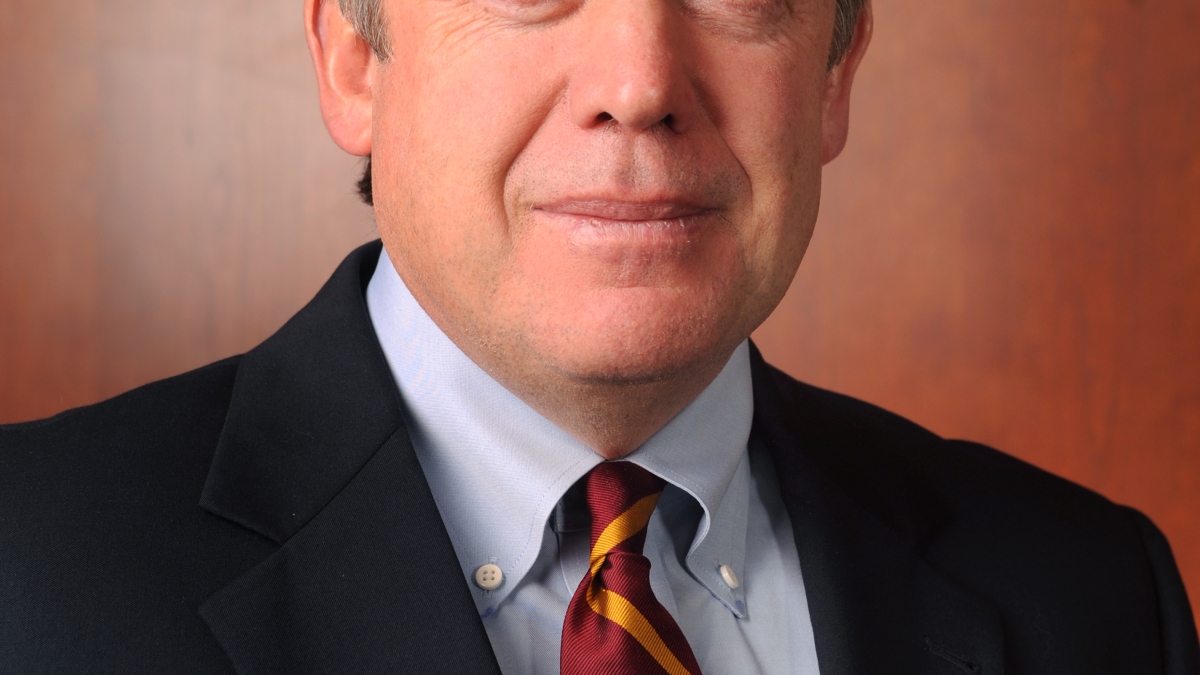Council on Competitiveness elects President Crow as university vice chair

The Council on Competiveness has elected Arizona State University President Michael M. Crow as its new university vice chair. The council is a non-partisan, non-governmental organization composed of corporate CEOs, university presidents and labor leaders who are committed to enhancing U.S. competitiveness in the global economy through the creation of high-value economic activity.
Crow joins the council board and executive committee with a proven track record in leading university research initiatives, including spearheading the transformation of ASU into one of the nation’s premiere public metropolitan research institutions. He succeeds Shirley Ann Jackson, president of Rensselaer Polytechnic Institute, who recently stepped down after five years of service.
“We are thrilled to have such a highly dedicated leader in the university sphere joining our board of directors,” said Deborah Wince-Smith, president and CEO of the council. “Through his visionary leadership, Dr. Crow has transformed ASU into a new model of the American university, focused on the major challenges of our time, as well as those central to quality of life, sustainable development and the economic competitiveness of Arizona and the nation.”
Since becoming president of ASU in 2002, Crow has established more than a dozen new transdisciplinary schools and large-scale research initiatives. Previously, he was executive vice provost of Columbia University, where he guided the university’s research initiatives, technology and innovation transfer operations. Currently, he also is a member of the Council on Foreign Relations and the U.S. Department of Commerce national Advisory Council on Innovation and Entrepreneurship.
“Universities play a critically important role in the advancement of U.S. competitiveness and it is vital that those contributions be thoughtfully integrated into our national economic strategy,” said Crow. “I welcome the opportunity and the challenge to support the Council on Competitiveness in its mission to expand and fortify the economic health of the United States.”
The Council on Competitiveness was founded in 1986 as a powerful “brain trust,” to set an action agenda to drive U.S. competitiveness while generating innovative public policy solutions to raise the standard of living for all Americans. The council has identified key economic challenges the United States must address:
• Ensure lower cost, easy access to high quality education and training for all Americans.
• Maintain long-term federal investments in science and technology leadership.
• Reform and simplify the tax code to stimulate investment and attract global capital to the United States.
And over the next 10 years, our nation must:
• Create at least 21 million jobs.
• Reduce unemployment to five percent.
• Reduce government debt by $4 trillion to ensure America’s long-term solvency.
• Invest $2.2 trillion in infrastructure to maintain competitive advantage.
• Double exports.
Meeting these goals requires a national pro-growth strategy coupled with significant fiscal discipline. The council has identified three core principles that must underpin that strategy:
• Innovation: the intersection of invention, insight and investment that leads to the creation of social and economic value – is the lifeblood of the U.S. economy.
• Economic resilience: the ability to manage emerging risks and bounce back from disruption – must be a strategic investment by the public and private sectors.
• Sustainable energy: exploiting domestic resources and using energy efficiently – is foundational to U.S. prosperity.
Other officers of the council’s board include Samuel Allen, chairman and CEO of Deere & Company, president; Mike Splinter, a 40-year veteran of the semiconductor industry who is executive chairman of the board of directors for Applied Materials, Inc., industry vice chair; and William P. Hite, general president of the United Association of Plumbers and Pipefitters and a 42-year UA member, labor vice chair.
Council membership is by invitation only and is offered to leaders who have shown stewardship not only of their business interests, but also of the communities in which they operate. For more information on the council, go to http://www.compete.org/.